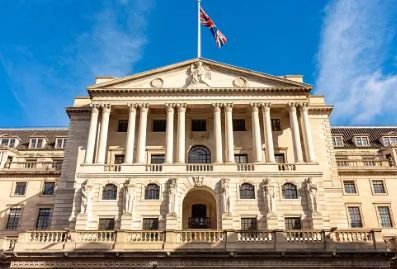
UK businesses are grappling with severe challenges as the country navigates an economic downturn in 2024. Official data from the Office for National Statistics (ONS) indicates that more than 1 in 5 trading businesses saw a decrease in turnover in June 2024 compared to May 2024. Moreover, a similar percentage of businesses reported rising costs for goods and services, though fewer businesses are passing these costs onto consumers.
Confirmation of the UK’s slip into a technical recession at the end of 2023 highlighted the country’s economic woes. The economy contracted by 0.1% in the third and fourth quarters of 2023, meeting the criteria for a recession. This downturn, while relatively mild compared to previous recessions, has still created significant difficulties for businesses across various sectors.
Many businesses have faced increased operational costs and supply chain disruptions in response to the recession. However, inflation has held steady at around 4%, lower than many had anticipated, providing some relief. Despite this, long-term economic inactivity due to health issues and other factors has reached record highs, further straining the workforce.

The government and the Bank of England have taken steps to address these issues, with interest rates steady at 5.25% and ongoing discussions about future economic policies. Business investment saw a modest increase, reflecting some optimism about future recovery. Still, many businesses remain cautious as they await further fiscal measures in the Spring Budget.
One of the major sectors affected by the downturn is retail. Retailers have reported a significant drop in consumer spending, leading to decreased sales and profits and forcing many retailers to offer deep discounts and promotions to attract customers, further eroding their profit margins. The rise in online shopping has also put additional pressure on traditional brick-and-mortar stores, many of which are struggling to compete with the convenience and often lower prices offered by online retailers.
The manufacturing sector has also faced challenges. Manufacturers have faced rising costs for raw materials and energy, which have squeezed their margins. Additionally, global supply chain disruptions have made it difficult for many manufacturers to source the necessary components and materials, leading to delays and increased costs. Some manufacturers have responded by passing these costs on to customers, but this has only been partially successful as demand remains weak.
The downturn has also hit the construction industry hard. Many projects have been delayed or cancelled due to uncertainty about the future economic climate. Rising costs for materials and labour have further complicated matters, making it difficult for construction companies to maintain profitability. Despite these challenges, there have been some signs of recovery in the sector, with a slight increase in business investment and a modest uptick in new projects.
Small and medium-sized enterprises (SMEs) have been particularly vulnerable during this downturn. Many SMEs operate with thin margins and limited financial reserves, making it difficult to weather prolonged periods of reduced revenue and increased costs. Government support programs have provided some relief, but many SMEs still struggle to stay afloat. Credit availability has also been a concern, with many SMEs finding it difficult to secure loans and other financing needed to sustain their operations.

The hospitality industry, which includes restaurants, bars, and hotels, has faced some of the most severe impacts. The industry was already struggling due to the lingering effects of the COVID-19 pandemic, and the economic downturn has only exacerbated these challenges. Many businesses in this sector have reported significant drops in bookings and sales, forcing them to cut costs and lay off staff. While some areas have slightly recovered in recent months, the overall outlook for the hospitality industry remains uncertain.
The real estate market has also experienced turbulence. While low interest rates have made borrowing cheaper, economic uncertainty has led many potential buyers and investors to adopt a wait-and-see approach, which resulted in slower sales and declining property values in some areas. Commercial real estate, in particular, has been hit hard as businesses reduce their office space in response to increased remote working and other cost-cutting measures.
Despite these challenges, there are some positive signs on the horizon. The UK government has announced several initiatives to support businesses and stimulate economic growth. These include tax cuts, investment in infrastructure, and various grant programs designed to help businesses recover and expand. Additionally, the Bank of England has indicated that it is prepared to take further action to support the economy, including potential interest rate cuts if necessary.
Another positive development has been the resilience shown by many UK businesses. Despite the difficult economic conditions, many businesses have adapted by innovating and finding new operating methods, including increasing their online presence, diversifying their product offerings, and finding new markets for their goods and services. These efforts have helped some businesses survive and thrive during this challenging period.
Looking ahead, the path to recovery for UK businesses will likely be slow and uneven. Much will depend on the effectiveness of government policies and the overall global economic environment. However, with continued support and a focus on innovation and adaptation, there is hope that UK businesses can emerge from this downturn stronger and more resilient than before.
The key to recovery will be maintaining stability and building confidence among consumers and businesses, and this will address the underlying issues contributing to the economic downturn, such as supply chain disruptions, rising costs, and workforce challenges. By tackling these problems head-on and providing targeted support, the government can help create an environment in which businesses can grow and prosper.

In conclusion, UK businesses face a difficult economic landscape in 2024, with many sectors experiencing significant challenges. However, Businesses are demonstrating resilience and making a strong recovery through government support and business innovation. The road to recovery will be long and complex, but with the right policies and continued efforts by businesses, there is potential for a brighter future.

Leave a Reply